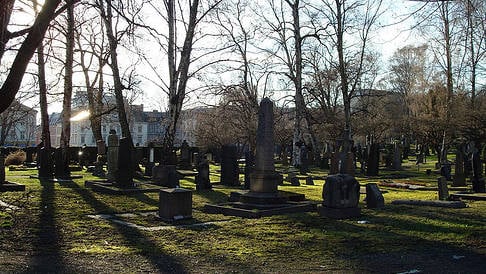The problem goes back to the misguided practice started in the 1950s of wrapping dead corpses in plastic before placing them in wooden coffins.
It was only in the 1980s, by which time 350,000 "plastic graves," had been created, that grave-diggers realised that the plastic prevented corpses decomposing, with stomach-turning consequences.
"I was working in the cemetery administration in my home town, and the cemetery workers started to tell me about the problems they have when they were re-using the old graves," Kjell Larsen Ostbye, founder of Nomias, told The Local.
"A lot of them quit because a lot of them couldn't handle the conditions. Some content is in a kind of soup-like condition and some is more firm, but it's a terrible smell. A rotten smell."
Ostbye gradually developed his process of puncturing the plastic sheathes and then injecting a lime-based solution into the corpses.
"It works rather fast. I believe in a few days most of the decomposition is done, but we let the graves rest for about two years before they are re-used," he said.
The procedure means that Oslo can begin to reuse plots that had previously been seen as immovable.
"The law tells us that if you open a grave from the period when they used plastic, you're not allowed to reuse it," Margaret Eckbo, Oslo's director of funerals, told the Wall Street Journal, who reported on the new technique in a story on Friday morning.
After launching Nomias in 2007, Ostbye already has a staff of ten and an annual turnover of 15 million kroner ($2.5m) from the 17,000 Norwegian graves he has treated.
He is now expanding into Germany, which has a similar problem with "plastic graves" and looking to bring his patented procedure to other European countries.
"I think we will expand to Europe. We have a network in Europe already, especially in Germany," he said.
"This kind of method can be used on all kinds of problem graves. It can be used to speed decomposition in wet clay soils also."


 Please whitelist us to continue reading.
Please whitelist us to continue reading.
Member comments